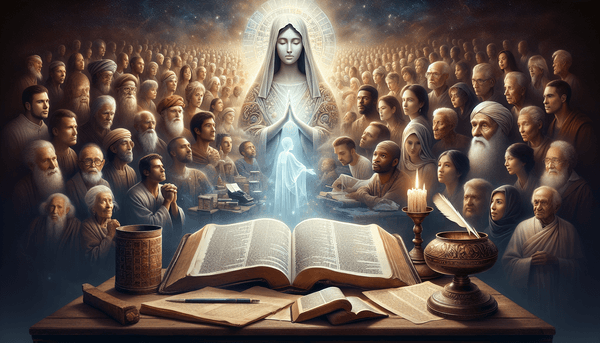The Essence of Faith in Christian Life
Faith is the cornerstone of Christian belief, a force that makes the impossible possible. Jesus frequently spoke about the centrality of faith, teaching that even faith as small as a mustard seed can move mountains (Matthew 17:20). He assured those who listened that 'Everything is possible for one who believes' (Mark 9:23). This profound connection between faith and the manifestation of God's power is echoed throughout the New Testament. The apostle Paul eloquently expresses this in his letter to the Ephesians, stating, 'For it is by grace you have been saved, through faith—and this is not from yourselves, it is the gift of God—not by works, so that no one can boast' (Ephesians 2:8-9). Faith is not a stagnant attribute but one that can be cultivated through hearing the word of God (Romans 10:17) and engaging with the community of believers. As the apostles themselves requested, 'Increase our faith!' (Luke 17:5), we too can aspire to deepen our faith through deliberate spiritual practice.
Understanding the Mark of the Beast
The book of Revelation, a tapestry of apocalyptic visions and prophecies, introduces us to the enigmatic concept of the 'mark of the beast.' This mark, as foretold, will be received on the right hand or forehead as a symbol of allegiance to the beast (Revelation 13:16-17). The nature of this mark has been the subject of much speculation and interpretation, often seen as a representation of opposition to divine authority. Those who choose to accept this mark align themselves with the beast, setting the stage for divine judgment. 'If anyone worships the beast and its image and receives its mark on their forehead or on their hand' (Revelation 14:9), they will face consequences as described vividly throughout Revelation. It is a stark reminder of the spiritual warfare that underpins the Christian narrative and the importance of choosing one's allegiances wisely. In the intricate dance of life, where guidance and wisdom are paramount, this narrative urges a reflection on the significance of trusting in divine wisdom as outlined in Proverbs 3:5-6.
FAQ
Q: What does exhortation mean in the Bible?
A: In the Bible, exhortation refers to the act of strongly encouraging or urging someone to take a particular course of action, especially in regards to living a life that is in accordance with God's will. It often involves offering words of encouragement, correction, and guidance to help fellow believers grow in their faith and live a life that honors God.
Q: What have Jesus said in the Bible about faith?
A: Jesus often spoke about the importance of faith, teaching that with faith, even the smallest amount, great things can be accomplished. He stated, \"Truly I tell you, if you have faith as small as a mustard seed, you can say to this mountain, 'Move from here to there,' and it will move. Nothing will be impossible for you\" (Matthew 17:20).
Q: What is the mark of the beast?
A: The mark of the beast is mentioned in the book of Revelation in the New Testament. It is described as a mark that will be given to people on their right hands or foreheads, and it is associated with the beast from the sea. Those who receive the mark of the beast are aligned with the beast and will experience God's judgment. The specific nature of the mark is not detailed in the Bible.
Q: What does it mean that 'The Word became flesh'?
A: 'The Word became flesh' refers to the Christian doctrine of the Incarnation, which posits that Jesus Christ is both fully divine and fully human. This concept is captured in John 1:14, which states, \"The Word became flesh and made his dwelling among us. We have seen his glory, the glory of the one and only Son, who came from the Father, full of grace and truth.\" It emphasizes the belief that God took on human form in the person of Jesus Christ.






